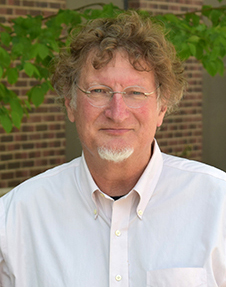Professor Dor Ben-Amotz retires after more than 30 years at Purdue
2022-06-01
Writer(s): Steve Scherer

Dor Ben-Amotz says he was always a curious youngster who wanted to understand how things worked.
“I had a chemistry set as a kid, but I never thought I was going to be a chemist. It wasn’t until after college at Bennington, where I had studied a lot of different things – music, math, and a little bit of chemistry. And then at some point I realized that chemistry combined all the things I really liked – theory, mathematics, and understanding how the world works,” Dor said.
You can read about his childhood, what influenced his interest in chemistry, and more about his research background in this scientific autobiography and tribute in the recent special issue (Festschrift) of the Journal of Physical Chemistry in his honor.
Dor came to Purdue in 1989 and admits that when he first started teaching, he wasn’t great at it. But student feedback and suggestions helped him improve.
“The scores on my early teaching evaluations were terrible, something like 2.7 out of 5. The most encouraging of the student comments at the end of that first semester was one that said something like, ‘I think he could be a good teacher someday,’” Dor chuckled.
“Harry Morrison, the department head at the time, called me up and asked me about those teaching evaluations, and I told him not to worry because I would get better,” he added.
His teaching did indeed improve over the years for which he was eventually awarded the Murphy Outstanding Undergraduate Teaching Award in 2012 and is a Purdue Teaching Academy Fellow.
Dor says when offering teaching advice to younger faculty and the thing he continually reminded himself is, “you are there to serve students.”
“What do these students want out of this class? Well, they want to know what is expected of them and they want to know what they have to do to get a decent grade. That’s my job. Instead of having the usual, essentially adversarial, relationship with students, I have to continually remind myself that I am here to help these students. And, of course, students would like the class to be interesting and perhaps even inspiring. They always respond well to enthusiasm for the subject,” Dor explained.
Over the years, he has taught introductory chemistry courses, as well as graduate courses and undergraduate physical chemistry to majors, chemical engineers, and biochemistry students.
On the research side, he and his group have used light (usually Raman spectroscopy) for chemical imaging and to listen in on the conversations between molecules in liquids, including water-mediated and ion-mediated interactions and self-assembly in aqueous solutions. His recent Perspective article in Science, entitled “Electric buzz in a glass of pure water,” is a good example of the breadth of current focus.
As far as his plans for retirement, Dor referenced the book, Four Thousand Weeks: Time Management for Mortals, as a reminder that the average human lifetime is only about four thousand weeks.
“Here’s the really sobering thing and I’ve calculated it out. I’m at 3500 weeks, so I’ve only got about 500 left. I don’t know what I’m going to do with each of those weeks, but I’m definitely going to play music (drums) with my improvisational music collaborators, as well as continue to do research with my improvisational scientific collaborators around the world,” he says.
Dor’s interest in music was fostered at Bennington College where he studied with Milford Graves.
“He was a fantastic teacher! Being a scientist is an improvisational process. Discoveries are not planned. You have to like leaping into the unknown. Milford Grave’s music and teaching style taught me a lot about all that,” Dor concluded.